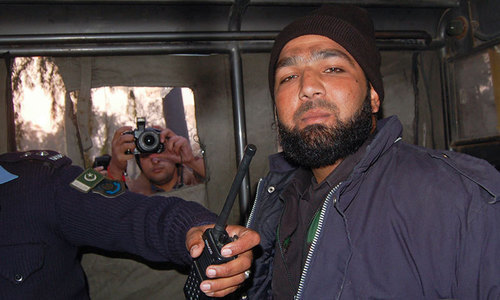LAHORE: It has been two years since the government lifted the moratorium on the death penalty following the militant attack on the students and staff of the Army Public School (APS) in Peshawar.
Since then, 419 prisoners on death row have been executed, making Pakistan the third most prolific executioner in the world two years in a row.
When Pakistan announced that it was lifting its six-year-old moratorium on capital punishment as part of its National Action Plan, the government had added that only those convicted of terrorism would be executed. But within three months, in March 2015, the moratorium was lifted across the board.
Though the move was celebrated initially as an “effective means” to curb terrorism, later the government did not publicly present a justification for lifting the moratorium across the board, Rimmel Mohydin, the media and communications officer at the Justice Project Pakistan (JPP), said.
The new policy came into effect without generating much public debate.
According to data collected by the JPP, only 16 per cent of the executions carried out since December 2014 were related to terrorism charges while a significant number of those executed included juveniles, and mentally and physically disabled inmates.
A press release issued by the JPP on Saturday said that in as many as 88 per cent of ‘terrorism’ cases, there was no link to a terrorist organisation or anything that could be reasonably defined as terrorism.
The press release said the NAP had correctly observed that there was a need to “revamp and reform Pakistan’s criminal justice system”. However no significant efforts had been made to do this so far.
This was compounded by the lack of a meaningful appellate process for capital cases, a blatant violation of Pakistan’s international human rights obligations.
Until March this year, the president had 444 pending mercy petitions while the known number of presidential pardons granted was zero.
One of the reasons for this was that it was mandatory for prisons to forward the three-line ‘mercy petition’ to the president, Ms Mohydin said, adding that because the plea did not contain details of the case, it was a mere formality.
More often than not, state-appointed lawyers made no efforts in the cases assigned to them.
“The justice system is rigged against those who need it the most,” she said.
Discussions JPP’s researchers have had on the subject with people from various socioeconomic backgrounds reveal an awareness of the pitfalls of a flawed justice system.
Ms Mohydin argued that it would be unfair to assume that the masses ever welcomed reinstatement of the death penalty across the board.
The press release further said it was a dishonour to the memory of the APS attack victims for the state to take lives in their name, when they had no bearing on curbing the menace that caused their deaths. In fact, the country experienced some of the worst terrorist attacks this year, she said.
The idea that the death penalty would act as a deterrent in the matter was dubious at best and not supported by scientific research or data.
The issue of wrongful executions came to light this year with several cases including the case of two brothers in Bahawalpur who had spent 11 years on death row and hanged only to be acquitted by the Supreme Court this year.
Another prisoner was found innocent a year after he had been found dead in his cell. Aftab Bahadur, who was executed last year, was a juvenile when convicted, as were Moinuddin and Azam who are still on death row.
The 100th prisoner hanged since 2014 was Muneer Hussain, a mentally ill person. There are likely many more cases like this and a condemned prisoner could spend an average of 11.41 years on death row, according to the press release.
Under Pakistani law, 27 crimes carry the death sentence, some of which include sabotaging the railway network and drug trafficking.
The press release added that an average of 258 death sentences were imposed each year between 2007 and 2015, explaining why the country had the highest populated death row in the world.
The criminal justice system that so eagerly imposed death sentences in the country warranted close examination, the press release said.
Pakistan’s faulty legal infrastructure remains inaccessible, corrupt, mired in red tape, beholden to power and usurped by influence and wealth, creating a permissive environment for the routine miscarriage of justice.
Published in Dawn, December 18th, 2016













































